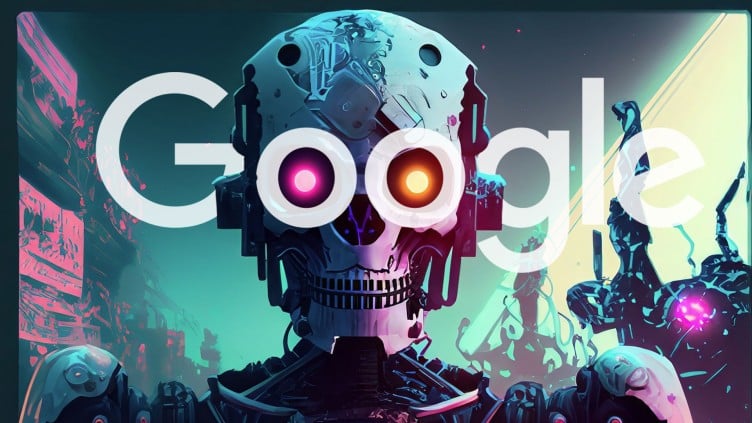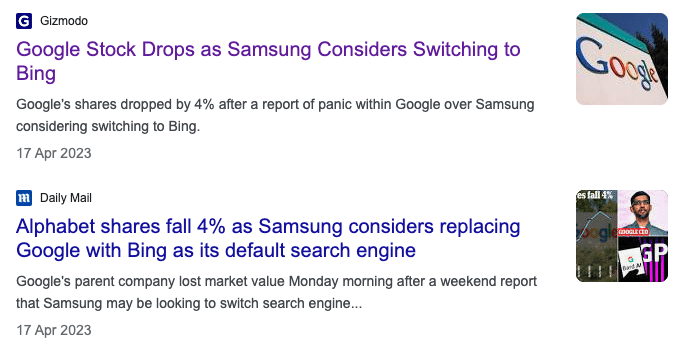I’ve been testing a very interesting – and rather popular- set of tools that can revolutionise your SEO strategy: generative AI. If you are not living under a rock, you’ve probably heard of Chat-GPT, Bard and a few other AI solutions.
These tools are evolving fast and getting better in a fantastic pace, and I believe that now is a great moment to start understanding how to integrate these solutions into your marketing strategies, more specificaly on content creation…
With its ability to effortlessly produce cheap and fast content on any topic, it’s tempting to rely solely on AI-generated content as the competition will get harder due to the high-volume of new content being generated.
However, Google has a different agenda. They prioritise user needs and value real-life experience over extensive knowledge. So to make most of it, we can use generative AI as intelligent assistants in the content creation process.
In this article, I’ll show you how to strategically integrate generative AI into your SEO strategy for long-term success.
Key Takeaways
– Relying too heavily on generative AI can lead to low-value approaches.
– Leveraging both AI and human input can create high-quality content.
– Original content boosts SEO rankings and attracts organic traffic.
– Generative AI saves time and effort in generating high-quality content.
Risks of AI generated content
If you rely too heavily on generative AI for content production, you risk creating low-value approaches that may generate temporary wins but won’t succeed in the long term. AI for SEO can be a powerful tool, but it’s important to understand its limitations.

Midjourney – Max Oliveira
While AI can help with tasks like ideation, research, content drafting, editing, proofing, and even SEO optimisation, it lacks real experience and human expertise. Falling into the trap of relying solely on AI-generated content can lead to shallow, unoriginal articles that don’t provide long-lasting value to readers.
Instead, it’s best to use AI tools as intelligent assistants, complementing human creativity and expertise. By leveraging the strengths of both AI and human input, you can create high-quality content that resonates with your audience and stands the test of time.
The importance of original content for SEO
Original content plays a crucial role in boosting SEO rankings and attracting organic traffic to your website. It is the foundation upon which successful SEO strategies are built.

Unsplash – Kaitlyn Baker (@kaitlynbaker)
When it comes to creating content, there are no shortcuts. While generative AI tools may seem like a convenient solution, they cannot replicate the value and authenticity of original content.
Here are three reasons why original content is essential for SEO success:
- Authenticity: Original content showcases your expertise and unique perspective, establishing trust and credibility with your audience.
- Uniqueness: Original content sets you apart from your competitors, helping you stand out in search engine results.
- Relevance: Original content allows you to tailor your messaging to your target audience, ensuring that your website appears in relevant searches.
Now that we understand the importance of original content, let’s explore why you should consider adopting generative AI in your SEO strategy.
Why should you adopt generative AI
There are several compelling reasons to incorporate generative AI into my approach for enhancing search engine optimisation.

Unsplash | Alex Knight – @agk42
Firstly, generative AI tools can save me a significant amount of time and effort in generating high-quality content. With AI assistance, I can quickly come up with new ideas, conduct thorough research, draft engaging articles, and even optimise them for SEO.
Secondly, generative AI can help me address the demands of search engine algorithms. By analysing large sets of data and staying up to date with the latest SEO trends, AI tools can guide me in creating content that aligns with what Google wants and pre-defined frameworks.
This ensures that my website remains relevant and visible to users, ultimately driving more organic traffic and improving my search engine rankings.
What Google wants
Google clearly outlines its expectations for creating helpful and reliable content that prioritises the user experience. As a content creator, it is crucial to understand what Google wants and align our strategies accordingly.

Unsplash – Nathana Rebouças
Here are three key things that Google emphasises:
- Relevance: Google wants content that is relevant to the user’s search intent. This means understanding the user’s needs and providing tailored information that directly addresses their queries.
- Quality: Google values high-quality content that is accurate, well-researched, and provides valuable insights. It’s important to focus on creating content that is trustworthy and authoritative.
- User Experience: Google wants content that is easy to navigate, mobile-friendly, and provides a seamless user experience. This includes fast loading times, clear formatting, and engaging visuals.
Tasks where generative AI can be helpful
When using generative AI tools, you can rely on them to assist with tasks such as ideation, research, content drafting, editing, proofing, and optimising for SEO. These tools offer a convenient way to generate ideas and gather information quickly.

DALL·E 3 – Max Oliveira
They can also help in drafting content by providing suggestions and generating paragraphs. When it comes to editing and proofing, generative AI tools can spot grammatical errors and offer alternative phrasing. Additionally, they can assist in optimising content for SEO by suggesting relevant keywords and analysing the readability of the text.
However, it’s important to remember that while these tools can be helpful, they should be used as an assistant rather than a complete solution. It’s still essential to apply human judgement and expertise to ensure the quality and value of the content.
Conclusion
In conclusion,I believe that integrating generative AI into your SEO strategy can be a useful tool in content creation, but it should not be relied upon solely. While AI tools can provide extensive knowledge, they lack real-life experience and may produce low-value content.
To ensure long-term success in SEO, it is important to prioritise original and user-centric content. By using generative AI as intelligent assistants, we can leverage their capabilities while maintaining a strategic mindset. Remember, AI is a tool and not a strategy.
Ultimately, creating valuable content that meets the needs of users should be the primary focus.

Max is the founder of ZBRA Marketing, a leading digital marketing agency based in Dorset,UK. With over 15 years of experience driving growth through marketing strategy, SEO, PPC and CRO, Max has worked with major global companies across diverse sectors in South America and Europe.
He takes a data-driven approach to creating tailored solutions that transform brands’ online presence and success.
Through ZBRA, Max provides strategic consulting and services including SEO, PPC, CRO and data analytics to help companies connect with their target audiences and accelerate their digital growth.



